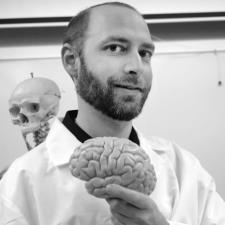
Geoff G. answered • 03/23/21
Current A&P Instructor with Extensive Physiology Experience
Answering this question is just a matter of identifying what the term "chemical digestion" refers to. It's easy to confuse the process of digestion with that of absorption because of how the term "digestion" is commonly used. The physiological definition of chemical digestion is breaking molecules down into forms that can be absorbed. Absorption is the process by which substances are moved from the digestive tract into the bloodstream via the cells lining the digestive tract.
Proteins, fats, and carbohydrates are collectively called "macronutrients" meaning that they're very large molecules. In fact they're too big for our bodies to absorb them in the form in which we ingest them so chemical digestion must occur so the body can then absorb and use them. Digestive secretions (like stomach acid) and enzymes break down fat, protein, and carbohydrates into fatty acids and monoglyceride, amino acids, and monosaccharides (simple sugars such as glucose) respectively.
Mineral salts and ions can pass through cells and into the bloodstream without needing to be altered or broken down. This is another way of saying that they don't need to undergo chemical digestion.




